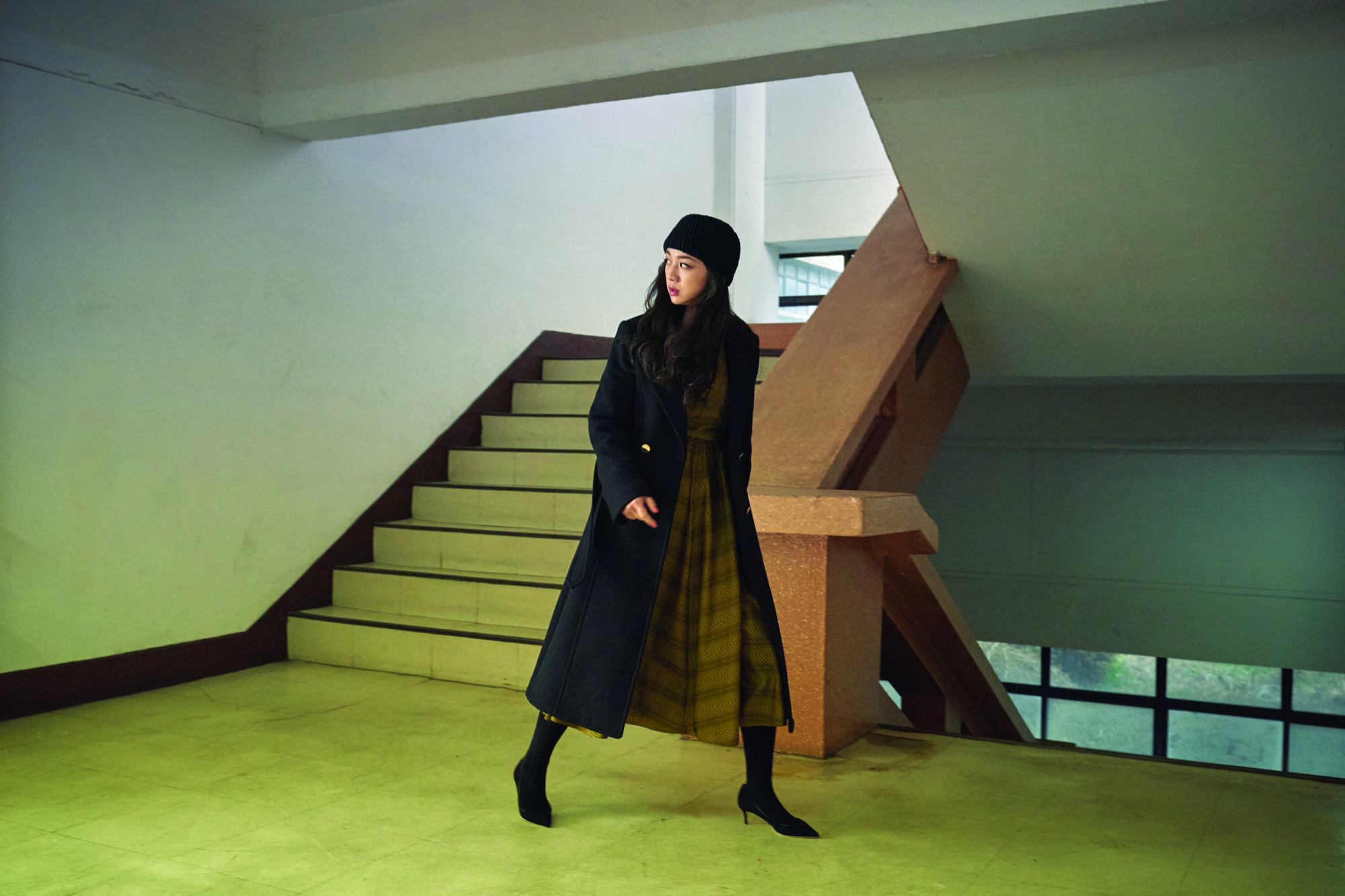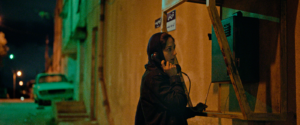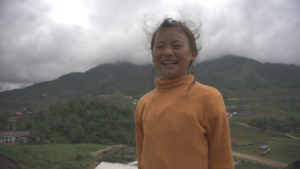‘When I say I’m a romantic filmmaker who makes romantic films, people usually laugh at me,’ Park Chan-wook remarked when promoting his eleventh feature, Decision to Leave (2022).[1]Park Chan-wook, quoted in Tomris Laffly, ‘Director Park Chan-wook Says “People Usually Laugh at Me” When He Insists He’s a Romantic Filmmaker’, The A.V. Club, 17 October 2022, <https://www.avclub.com/decision-leave-director-park-chan-wook-interview-1849656938>, accessed 23 November 2022. You can see why people would. The 59-year-old South Korean filmmaker is best known, and most acclaimed, for his ‘vengeance’ trilogy – Sympathy for Mr Vengeance (2002), Oldboy (2003) and Sympathy for Lady Vengeance (2005) – and, among those films, for the infamous scene in Oldboy in which the film’s ultraviolent man on a mission takes out a corridorful of advancing hoodlums with a claw hammer, proceeding in artful cutaway as if in a side-scrolling videogame.
Even when Park has made something that could scan as a love story, it’s come with a wrinkle. Thirst (2009) is about a love triangle, but it’s also a vampire movie filled with body horror and religious iconography; while The Handmaiden (2016) is a valentine to socially taboo same-sex love, but also a tale of class and national division, duplicitous double-crosses, and decadent perversity.
Park offers two reasons for why people never thought that he was making love stories: that his use of ‘violence and nudity’ has been ‘just too strong, too graphic’;[2]Park Chan-wook, quoted in Eric Kohn, ‘Park Chan-wook Wanted More People to Appreciate His Films, so He Dropped the Sex and Violence’, IndieWire, 13 October 2022, <https://www.indiewire.com/2022/10/park-chan-wook-interview-decision-to-leave-1234771978/>, accessed 23 November 2022. and that his employment of genre tropes – thriller, action movie, horror – has disguised his intentions.[3]See Laffly, op. cit. So, with Decision to Leave, the director has instead chosen to subdue the sex and violence and foreground the romance. He’s aided in this desire by the movie’s premise, in which a cop and a murder suspect fall for each other, only to be kept apart by lines of morality and legality. With their love being one that dare not be consummated, the most explicit moments of passion here are when the pair share the same moisturiser, lip balm or longing looks.
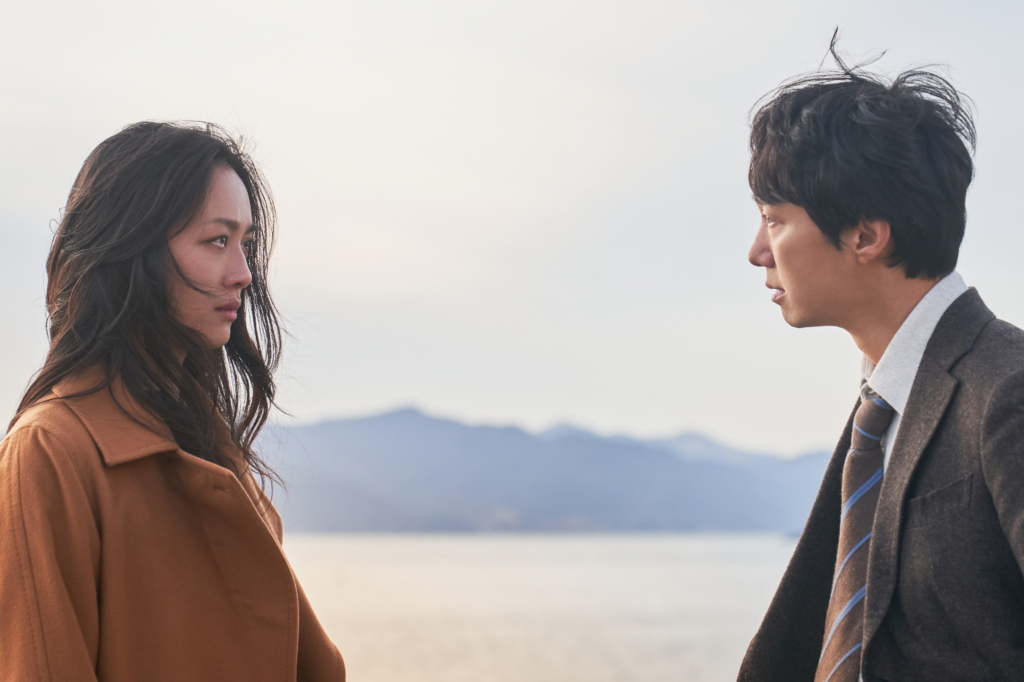
‘Love is the best subject’ for exploring human complexities through art, Park offers: ‘Love has thrill, it has mystery, it has comedy, it touches you and it horrifies you.’[4]Park Chan-wook, quoted in Jake Coyle, ‘Interview: Park Chan-wook on Love, Genre and Decision to Leave’, Taipei Times, 14 October 2022, <https://www.taipeitimes.com/News/feat/archives/2022/10/14/2003786998>, accessed 23 November 2022. It also complicates notions of genre. Decision to Leave ‘starts out as a film noir and ends as a romance’, the director explains, a development he sees as necessary for its success: ‘Most film noirs are too obsessed with creating the ambience and focusing on the dark mood. They fail to bring out the multidimensional facets of life.’[5]Park, quoted in Kohn, op. cit.
With Decision to Leave, the director has instead chosen to subdue the sex and violence and foreground the romance … The most explicit moments of passion here are when the pair share the same moisturiser, lip balm or longing looks.
Park stages the film as a diptych, with each of the movie’s halves hewing closely to one half of the central couple. In the first, set largely in metropolitan Busan, we first meet Hae-joon (Park Hae-il), a gentleman detective who prides himself on his respectful police work. He’s assigned a case in which a mountain climber, Do-soo (Yoo Seung-mok), has fallen to his death in dubious circumstances. Do-soo’s much younger wife, Chinese-born Seo-rae (Tang Wei), immediately comes under suspicion, less due to hard evidence than to her aloof, mercurial behaviour, which involves laughing while under interrogation (she claims it’s due to lacking confidence in her Korean) and showing no grief for her husband’s death – ‘He perished as he wished,’ she observes bluntly. When it turns out that Do-soo was controlling, possessive and abusive, that both provides a motive for Seo-rae and makes her a more sympathetic figure.
In this section, Decision to Leave functions as a policier. We see Hae-joon at work not only on this case, but also on a parallel police investigation pursuing low-rent gangsters. He stays in Busan during the week, barely sleeping at night – an insomniac haunted by spectres of victims. On weekends, he returns to the foggy, drowsy (fictional) seaside town of Ipo where he lives with his wife, Jeong-ahn (Lee Jung-hyun), a place offering a reassuring domestic contrast to his nocturnal life in Busan.
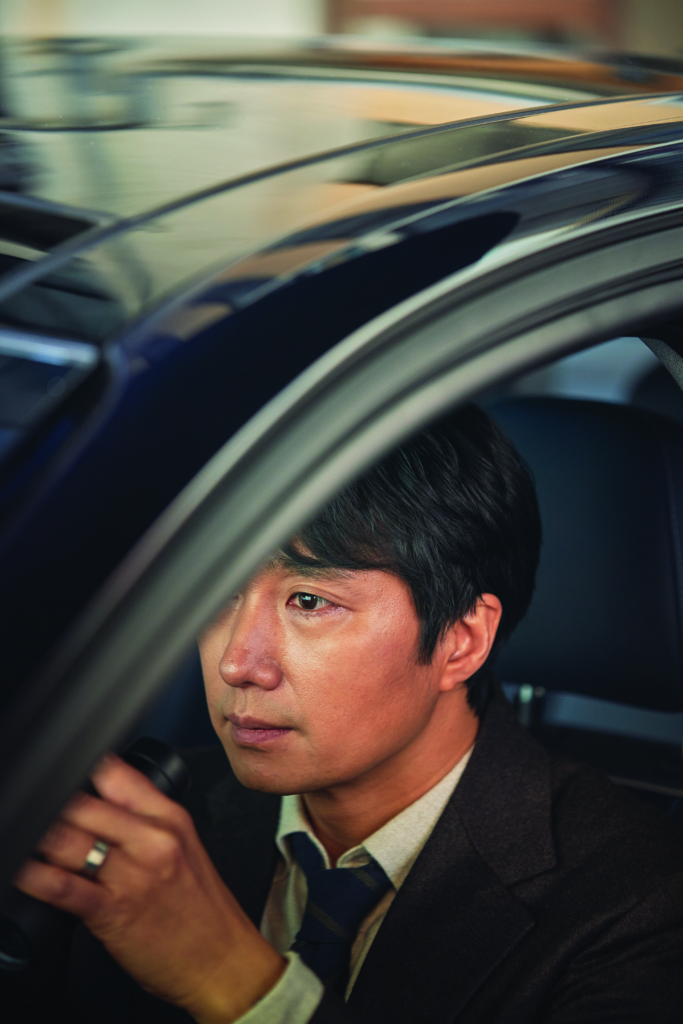
Jeong-ahn is an interesting, empathetic character: a scientist who’s smart, silly and sexually enthusiastic, but also has a separate, secret life of her own. This amplifies the transgression of Decision to Leave’s love that cannot be. Growing increasingly obsessed with his prime suspect, the morally upstanding Hae-joon falls into feelings that run contrary to moral codes of both police work and matrimony. His obsession is not a byproduct of Seo-rae’s powers of seduction, however, but an earnest undertaking of emotion. Park renders Hae-joon’s investigation as something wholly personal: an act of love. ‘When you’re in love, you’re naturally curious about the other person,’ the filmmaker says. ‘There’s always that sense of doubt that makes you want to dig in deeper […] I think it really becomes similar to a detective’s investigation.’[6]Park, quoted in Coyle, op. cit.
Hae-joon is cut from a different cloth from most movie cops: he doesn’t carry a gun, but moisturiser and wet wipes, and his personal code of conduct includes never being violent in interrogation. In the same way, Seo-rae is soon revealed to be not some stock femme fatale but a character who has the same seriousness and agency as the assumed protagonist. Here, Park is playing against type, undermining familiar clichés.
When Hae-joon stakes her out, follows her and keeps her under investigation, Seo-rae begins to follow him in turn. He creeps outside her window; she goes through his stuff. When he takes part in a foot chase after a criminal, she drives after them, pulling over to watch their fight. She catches him asleep in his car outside her house and takes his picture. She wants him to know that she knows he’s watching her, and that she’s watching him in turn. Following a long, frisson-filled period of flirtation – in which interrogation is reframed as seduction – she eventually crosses a line, and invites him to her house. ‘Don’t you come here often anyway?’ she texts, knowingly.
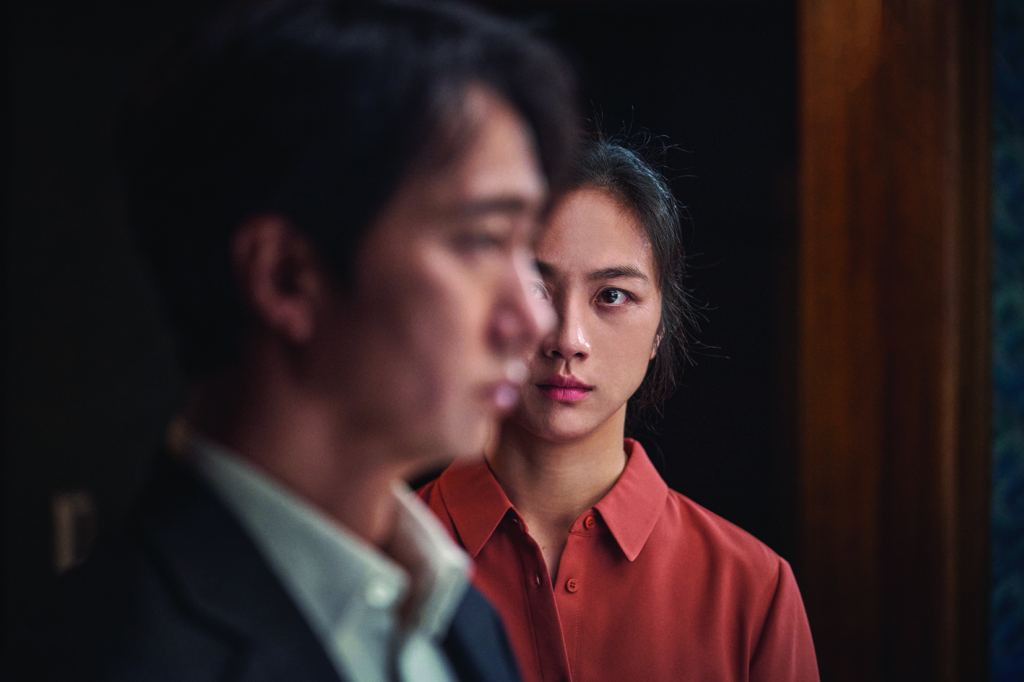
The middle section of the film opens a brief window wherein the audience, and the protagonists, can see how harmonious a union between the pair would be. After the investigation discovers that Do-soo was a corrupt immigration official whose death could easily have been a suicide leap to avoid the repercussions of a public revelation, Seo-rae is cleared. In this time, our central pair play house in Hae-joon’s Busan crash pad, cooking dinner together. She helps him overcome his insomnia and get some sleep; they go on a secret date to a shrine; Hae-joon helps Seo-rae at her job as a home-help nurse tending to elderly patients (for a company called Granddaughter’s Love Caregiving Service, no less).
But, soon, Hae-joon realises – like so many swooning romantics before him – that he’s living in a state of delusion. Small cracks (swapped phones, rough hands, steps recorded by app) start to appear in her alibi; and, eventually, by re-creating her steps, Hae-joon is at last able to see – in a somewhat fantastical device – what really happened: Seo-rae pushed her husband to his death. He’s angry with her only insofar as he’s offended that she, as abused spouse, took the law into her own hands rather than coming to the police. But mostly he’s upset with himself, his failure as a police officer having shaken his identity. ‘Now I’m completely shattered,’ he declares.
From there, we shift into the second half of the diptych, which picks up the narrative thirteen months later. It’s once more set in Ipo, but this time takes place on Seo-rae’s terms. Following his moment of career crisis, Hae-joon has moved back home, hoping to deal with depression, insomnia and a loss of confidence in his sleuthing abilities. Seo-rae has also moved to Ipo, with a fresh fiancé – sleazy financier Ho-sin (Park Yong-woo) – on her arm. Sure enough, Ho-sin is soon found dead in their home, having been stabbed seventeen times.
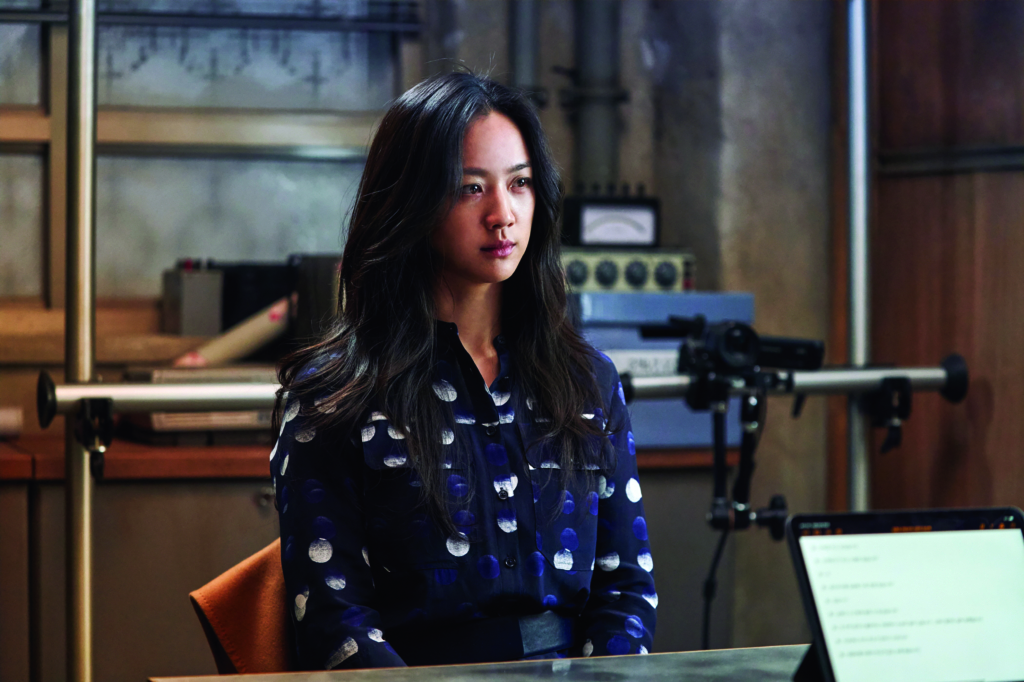
Hae-joon is immediately sure Seo-rae has done it, so as to give him the ‘gift’ of a murder case to investigate and to re-create the situation that brought them together (Park manages to make being handcuffed together in a police car heading to the station seem impossibly romantic). Taking Seo-rae in as a suspect opens old wounds, but rekindles old feelings, too. Whereas the initial investigation featured the characters going out of their way to keep their feelings hidden, here they’re more open, almost combative. ‘Am I such a pushover?’ Hae-joon says, offended by the idea that she’d try to get away with murder under his nose once more. ‘Am I so wicked?’ Seo-rae replies, wounded. Later, she will say aloud: ‘Maybe I went to Ipo to become one of your unresolved cases.’
In this second half of the film, Seo-rae takes the fore. Park conceives of this as a ‘female’ counterbalance to the more traditionally masculine Side A. By this point, she ‘is no longer this enigmatic figure that the male protagonist needs to solve’, the director says. ‘She’s going to show […] who she is to the audience: she is just a woman in love, and she will do anything for love, even going beyond the social and moral norms.’[7]Park Chan-wook, quoted in Thomas Page, ‘“This Story Departs from All Conventions”: Park Chan-wook on Updating Film Noir and Subverting the Male Gaze in Decision to Leave’, CNN Entertainment, 20 October 2022, <https://edition.cnn.com/2022/10/20/entertainment/park-chan-wook-interview-decision-to-leave/index.html>, accessed 24 November 2022.
The wild sex and violence of Park’s early pictures have been replaced by characters who are unable to let it all out, who feel repressed by convention, who are prisoners to the lives that surround them.
The drama proceeds through memorable sequences towards where it was always, inevitably, heading: tragic romance. Seo-rae is once again cleared of the murder – a local small-time crim, ‘Slappy’ (Seo Hyun-woo), confesses to the killing; though circumstances are, of course, complicated – but Hae-joon doesn’t believe it. Instead, he once more becomes obsessed with the case, with the notion that he’s being ‘played’ by the woman who makes him lose his mind. In the midst of his fixation, he doesn’t notice that his marriage has fallen apart: Jeong-ahn leaves one night with another man.
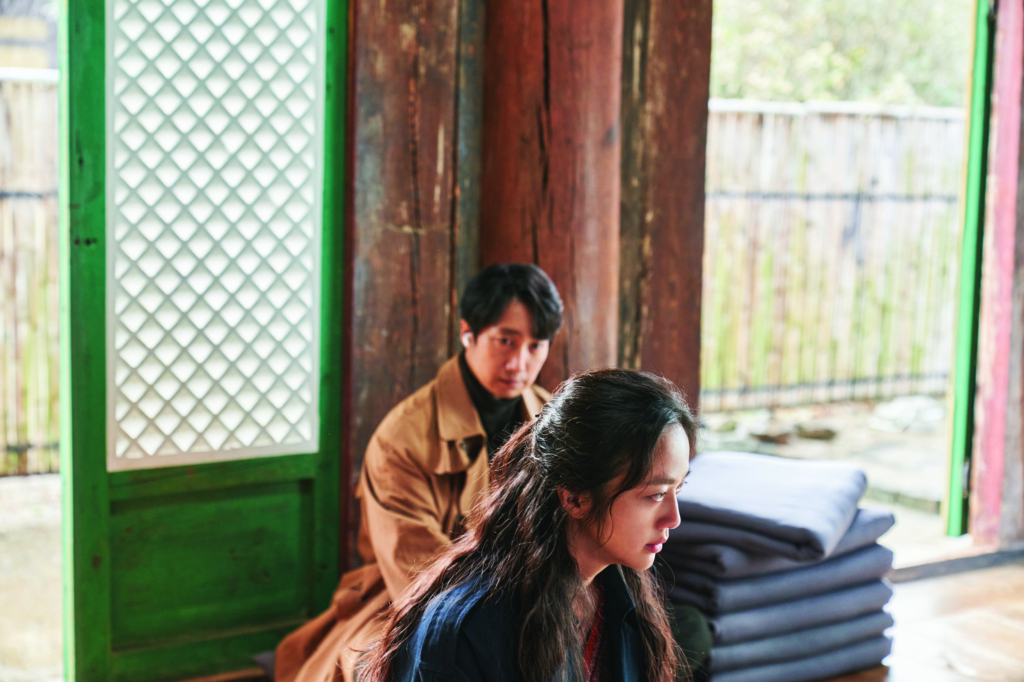
This could, theoretically, leave Hae-joon and Seo-rae free to be together, but the past dooms them in the present: all their deceptions and surveillance leave behind a cold, digital trail of quantifiable data and confessional voice recordings, at once beautiful yet fateful. Once Seo-rae discovers that this new case won’t get Hae-joon out of his depression – that he remains ‘shattered’ – she chooses to essentially erase herself from his life, and from the landscape itself. In a memorable final sequence, she buries herself in a grave dug in the sand of a beach. As high tide comes in, the water buries her a second time.
This is a call-back to something Seo-rae has told Hae-joon earlier in the film: ‘Confucius said: “Wise people like water; benevolent people like mountains.” I am not benevolent. I like the sea.’ Mountains were beloved by her husband, a man who was stoic, unmoving, unforgiving; whereas the ever-changing tides and mercurial ways of the ocean suit her spirit. But the act is also a way of enshrining herself, forevermore, as one of Hae-joon’s unresolved cases. ‘Seo-rae wanted Hae-joon to spend sleepless nights looking at a photo of her and thinking about her […] So she has to find a way where she can disappear without a trace,’ Park explains. ‘Hae-joon can’t even tell if Seo-rae is alive or dead, and he’s forever cursed to look for her, believing that she is lost.’[8]Park Chan-wook, quoted in Jessica Wang, ‘Director Park Chan-wook on Why Oldboy’s Twist Remains His Favorite’, Entertainment Weekly, 14 October 2022, <https://ew.com/movies/park-chan-wook-decision-to-leave-interview/>, accessed 24 November 2022.
This turn towards tragedy is another tonal shift for a film that is always pushing back against preconceptions, even those suggested by previous scenes. There are moments of broad buddy-cop comedy – Hae-joon is, in the film’s early stretches, partnered with the much younger, goofy, would-be macho policeman Soo-wan (Go Kyung-pyo) – that shift into mystery, melodrama, whodunnit, before the trappings of genre fall away altogether to spotlight what Park always intended to bring to the fore: the romance.
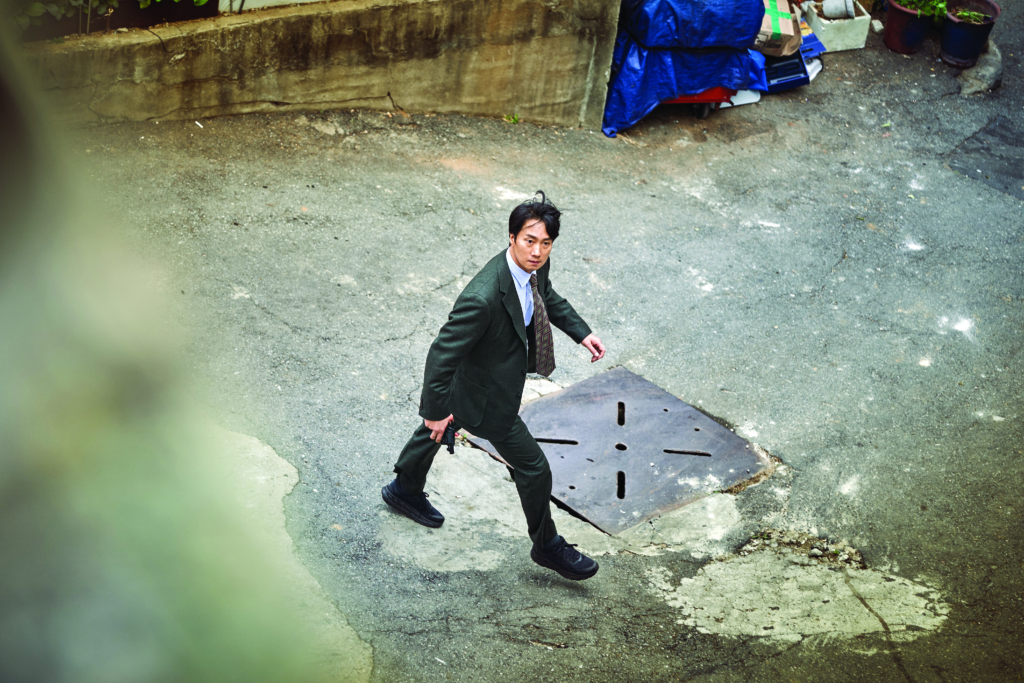
Park won the Best Director award at the 2022 Cannes Film Festival for Decision to Leave, and it’s a work that shows him to be a filmmaker in command of his craft: inventive match cuts show his fondness for storyboarding; smash cuts and wild zooms have a zany energy; cuts between parallel action are precise; and there are delightful instances of unexpected reveals, such as when Jeong-ahn rises from a bathtub or Seo-rae is seen hiding behind a cupboard door. Park also uses theatrical devices – moving sets, shifting lights, different locations and moments existing in a single physical space – to fold time itself; and, as always, he showcases his fondness for bright colours and evocative wallpaper. These are all familiar visual motifs for the director, but there are thematic resonances with his previous pictures, too – in particular, the film’s depiction of a woman seeking vengeance against her controlling husband, as well as the intersection of her family past with the history of the Japanese occupation of Korea and Manchuria.
Decision to Leave thus possesses many of the hallmarks of Park’s films,[9]See Anthony Carew, ‘Visionary Violence: Park Chan-wook’s Inimitable Style’, Metro, no. 191, Summer 2017, pp. 48–57. but it also shows its maker to be older, softer, in a more reflective place. The wild sex and violence of his early pictures have been replaced by characters who are unable to let it all out, who feel repressed by convention, who are prisoners to the lives that surround them. It’s a romance, but not a naive one – rather, a portrait of how, no matter how overwhelming the feeling may be, forces bigger than an individual can prove more powerful than love.
Endnotes
| 1 | Park Chan-wook, quoted in Tomris Laffly, ‘Director Park Chan-wook Says “People Usually Laugh at Me” When He Insists He’s a Romantic Filmmaker’, The A.V. Club, 17 October 2022, <https://www.avclub.com/decision-leave-director-park-chan-wook-interview-1849656938>, accessed 23 November 2022. |
|---|---|
| 2 | Park Chan-wook, quoted in Eric Kohn, ‘Park Chan-wook Wanted More People to Appreciate His Films, so He Dropped the Sex and Violence’, IndieWire, 13 October 2022, <https://www.indiewire.com/2022/10/park-chan-wook-interview-decision-to-leave-1234771978/>, accessed 23 November 2022. |
| 3 | See Laffly, op. cit. |
| 4 | Park Chan-wook, quoted in Jake Coyle, ‘Interview: Park Chan-wook on Love, Genre and Decision to Leave’, Taipei Times, 14 October 2022, <https://www.taipeitimes.com/News/feat/archives/2022/10/14/2003786998>, accessed 23 November 2022. |
| 5 | Park, quoted in Kohn, op. cit. |
| 6 | Park, quoted in Coyle, op. cit. |
| 7 | Park Chan-wook, quoted in Thomas Page, ‘“This Story Departs from All Conventions”: Park Chan-wook on Updating Film Noir and Subverting the Male Gaze in Decision to Leave’, CNN Entertainment, 20 October 2022, <https://edition.cnn.com/2022/10/20/entertainment/park-chan-wook-interview-decision-to-leave/index.html>, accessed 24 November 2022. |
| 8 | Park Chan-wook, quoted in Jessica Wang, ‘Director Park Chan-wook on Why Oldboy’s Twist Remains His Favorite’, Entertainment Weekly, 14 October 2022, <https://ew.com/movies/park-chan-wook-decision-to-leave-interview/>, accessed 24 November 2022. |
| 9 | See Anthony Carew, ‘Visionary Violence: Park Chan-wook’s Inimitable Style’, Metro, no. 191, Summer 2017, pp. 48–57. |
